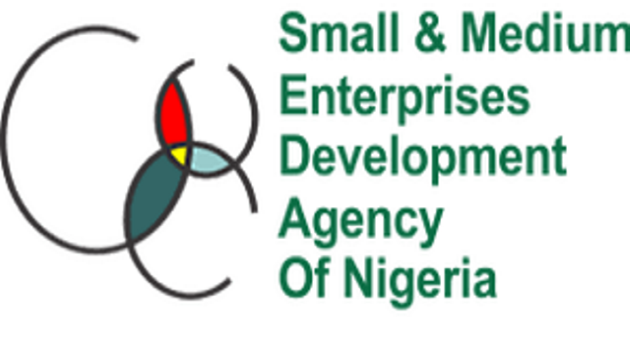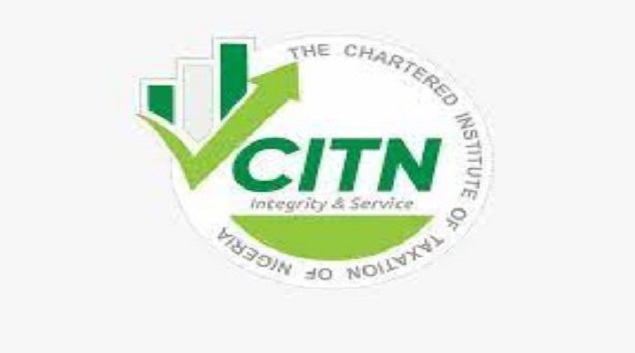E-Financial
SEC, SMEDAN To Launch Campaign on SME Financing

The Securities and Exchange Commission (SEC) is set to collaborate with the Small and Medium Enterprises Development Agency of Nigeria (SMEDAN) to implement joint nationwide sensitization campaigns on “Financing SMEs through the Capital Market.”

Director-General of the SEC, Emomotimi Agama, said this during a meeting with SMEDAN in Abuja on Tuesday. He said both agencies would co-brand financial literacy content and SME investment-readiness toolkits.
Agama explained that the meeting aimed to initiate a strategic collaboration between the SEC and SMEDAN to support small business financing through access to the capital market.
The engagement, he noted, aligns with the mandate of the SEC’s newly established Office of Small Business Advocacy (OSBA), which serves as the primary interface between the Commission and SMEs seeking to raise capital via securities issuance.
According to him, SMEs represent over 90 percent of businesses in Nigeria and contribute significantly to employment and GDP.
Despite their importance, most SMEs face major obstacles in accessing long-term, affordable financing.
He said the SEC, through the OSBA, is actively working to broaden access to market-based financing instruments for SMEs.
He noted that SMEDAN, as a statutory stakeholder in the MSME space, has deep knowledge, nationwide networks, and relevant data infrastructure to support SME development.
A collaborative framework between the SEC and SMEDAN, he added, will foster synergies for policy innovation, capacity building, and SME investment readiness.
Agama further disclosed that the Commission seeks to formalize a partnership with SMEDAN to implement coordinated interventions such as secure access to reliable and verified SME data to enable capital market outreach and segmentation, joint use of SME analytics for market readiness assessments and policy insights, and training programmes for SMEs on capital market funding opportunities, governance, and compliance.
He added that both agencies hope to co-host a National SME Capital Market Summit in the third or fourth quarter of the year to showcase financing opportunities for SMEs.
He emphasized the need to harness Nigeria’s entrepreneurial potential through inclusive capital formation, saying, “There will be no economy without the capital market.
“The capital market is the engine room of any economy. The reason companies are not approaching the market is due to lack of funds.
“We are here to change the narrative because we know that SMEs are the backbone of our economy.
By working with SMEDAN, we can create enabling frameworks to help these businesses access long-term funding.”
Also speaking, the SEC’s Executive Commissioner, Legal and Enforcement, Frana Chukwuogor, noted that under the new Finance Act and SEC regulations, small business owners can raise funds through the capital market, either through equity or debt, to grow their enterprises. She added that the capital market can provide the financial boost SMEs require.
In his remarks, the Director-General of SMEDAN, Charles Odii, welcomed the collaboration, describing it as a game-changer for Nigeria’s SME landscape.
He said that the alliance with the SEC aligns perfectly with SMEDAN’s mandate to upscale and formalize the informal sector.
By introducing SMEs to non-traditional funding avenues like bonds, equities, crowdfunding, and other market instruments, he said more businesses can be empowered to scale sustainably.
The meeting concluded with a shared commitment to establish a national working team to streamline SMEs’ onboarding processes for capital market participation, develop targeted investor education programmes, and create innovative financing models tailored to the needs of small businesses.
This partnership marks a pivotal step toward inclusive economic development and is expected to catalyze job creation, industrial growth, and financial inclusion across the country.
E-Financial
Nigerians Lose N4.8 Trillion to Scams Since 2016

Nigerians have lost N4.8 trillion ($2.99 billion) to various scams since 2016, according to findings by Paul Alaje, a prominent Nigerian economist and chief economist at SPM Professionals.

This is coming on the heels of the recent crash of Crypto Bridge Exchange (CBEX), a digital asset company, where over 600,000 investors lost N1.3 trillion.
With the collapse of CBEX, Alaje said that accounting for the depreciation of the naira, the actual figure is close to N8 trillion ($5 billion) since 2016.
CBEX, like all Ponzis and scams, was an investment fraud that pays existing investors with funds collected from new investors.
CBEX lured investors with promises of a 100% return on investment after 30 days.
Consistent with other scams, the early investors received the promised returns, attracting thousands more into what they thought was a legitimate platform.
Following the platform’s collapse, the Economic and Financial Crimes Commission (EFCC) has arrested two suspects believed to be among the operators.
A source from the economic crimes watchdog told a local outlet that five others, including two Nigerian siblings and a British citizen, are under probe for their involvement.
The EFCC is investigating who funded the firm, how it managed to evade regulatory scrutiny, and its legacy financial partners.
Emomotimi Agama, director general, Securities and Exchange Commission (SEC) said that CBEX wasn’t registered, limiting the agency’s ability to crack down on the company.
“The first responsibility of the SEC is to watch over regulated institutions within the confines of its available resources. Registration actually is the hallmark of regulation. Without registration, the possibility of regulation becomes difficult,”.
Agama further noted that no member of the public had made any reports regarding CBEX before it blew up, despite the company operating for nine months.
E-Financial
FG Rakes in N1.2 Trillion from Banks’ VAS

Nigeria’s banking sector, in 2024, thrived in a stormy economic climate, capitalising on market volatility to deliver record profits.

According to The Sun, nine of the country’s listed banking giants—Access Holdings, FCMB, Fidelity, First Bank Holdco, GTCO, Stanbic IBTC, UBA, Wema Bank, and Zenith—posted a combined profit after tax (PAT) of N4.786 trillion, a clear 53.3 per cent increase from the N3.121 trillion recorded in 2023.
Yet, beyond the glittering headline figures lies a deeper story, one told not just by earnings reports, but by the banks’ Value-Added Statements (VAS).
Often overlooked, this financial segment unpacks how the wealth created by each institution was distributed among key stakeholders: governments, employees, shareholders, and capital providers.
In 2024, total value added across these top banks surged to N8.871 trillion, a 66.3 per cent rise from N5.335 trillion the year before.
But what’s striking is who took the biggest slice of this financial pie.
The Nigerian government emerged as the single largest external beneficiary, surpassing shareholders by a significant margin.
A closer look reveals that tax collections from these banks totaled N1.166 trillion, marking a dramatic 111.4 per cent increase from the previous year.
Shareholders, by contrast, received N951.4 billion in dividends—an 87 per cent rise, but still over N200 billion less than what the government took home.
Zenith Bank led the profitability race, reporting a PAT of N1.032 trillion and generating N1.583 trillion in value added.
The government received N294 billion from the bank in taxes—the highest across the industry—while shareholders earned N196.7 billion.
A hefty N1.085 trillion was retained for reserves and future investments.
GTCO followed closely with a PAT of N1.018 trillion and N1.410 trillion in value added.
Taxes to government soared to N248.4 billion—a staggering 257 per cent year-on-year increase—while dividends to shareholders stood at N236.3 billion, slightly trailing government collections.
Access Holdings posted the highest total value added—N1.622 trillion—with a PAT of N642.2 billion.
From this, the government claimed N224.8 billion (14 per cent of value added), while N125.3 billion went to shareholders.
First Bank Holdco recorded a value added of N1.593 trillion and PAT of N663.5 billion, with N132.9 billion in taxes paid.
Yet shareholders received just N25.1 billion, highlighting a sharp imbalance in wealth distribution.
Fidelity Bank’s PAT rose 179 per cent to N278.1 billion, with value added hitting N508.7 billion.
Government collections surged to N95.5 billion, dwarfing shareholder payouts.
Stanbic IBTC reported N408.6 billion in value added. Interestingly, employees received the largest share—N86.7 billion—outpacing both the government (N78.5 billion) and shareholders (N64.8 billion).
FCMB faced a 21 per cent dip in PAT to N73.3 billion, but still increased its value added by 24 per cent to N205.1 billion. Government received N38.6 billion, nearly double what shareholders earned (N21.8 billion).
UBA, with a PAT of N766.6 billion, generated N1.384 trillion in value added.
However, 75 per cent of this was retained for business growth and expansion.
Wema Bank, one of the year’s breakout performers, recorded a PAT of N86.3 billion, up nearly 140 per cent, and created N156.7 billion in value added.
In a rare deviation from the trend, shareholders received N21.4 billion, exceeding the N16.2 billion paid in taxes, placing Wema among the few banks where equity investors earned more than the state.
While Nigerian banks returned record profits in 2024 and shareholders saw strong dividend growth, it was the government that emerged the biggest financial winner, receiving a massive N1.166 trillion—over N200 billion more than total shareholder dividends. The figures underscore a significant shift in wealth distribution from capital investors to the public treasury, raising important questions about how value is shared in Nigeria’s evolving financial ecosystem.
E-Financial
CITN Tasks New Tax Professionals to Shape Fiscal Policies for Efficient Tax System

Mr. Samuel Agbeluyi, the President of the Chartered Institute of Taxation of Nigeria, has charged incoming tax professionals to see their roles as critical to shaping Nigeria’s fiscal policies and building a more efficient tax system.

Agbeluyi gave the charge on Tuesday at the opening of the April 2025 Pre-Induction Orientation Programme held in Abuja.
While addressing participants, the CITN President said the orientation marked not just a personal achievement for inductees but the beginning of a greater national responsibility.
According to him, “Ultimately, it is expected that at the end of this programme and the induction thereafter, the number of tax professionals in the roll call of the CITN and indeed Nigeria would grow.
“Most importantly, more professionals would be added to the struggle of building an efficient and effective tax system in Nigeria, whilst influencing government fiscal policies and adding immense value to various stakeholders.”
Agbeluyi stated that the institute’s charter empowers it to determine the standard of knowledge and skills required to become a professional in the field, adding that the training was a deliberate step towards producing competent tax administrators capable of delivering value in the Nigerian economy.
He also noted that facilitators had been carefully selected from among experienced tax professionals and administrators to guide inductees using practical scenarios.
In her remarks, the Deputy Director of the CITN Tax Academy, Mrs Yetunde Suleiman, said the training was designed to expose participants to key developments in national and international tax administration, as well as emerging issues in the digital economy.
She noted that taxation remained central to Nigeria’s economic development and urged the inductees to take their training seriously in light of growing challenges in the country’s tax system, such as evasion, ambiguity of laws and high compliance costs.
Suleiman said, “There is a continuous need to produce, train and unleash qualified tax professionals to tackle these hydra-headed tax challenges.”
She urged participants to approach the sessions with enthusiasm, noting that the knowledge acquired would prepare them to become ambassadors of the institute and sound professionals equipped to drive reform in the tax space.

 Telecom3 days ago
Telecom3 days agoDigital Transformation Remains Africa’s Gateway to Economic Advancement – Adumike

 Telecom3 days ago
Telecom3 days agoPAFON 2.0: Experts Discuss Pathways to Boost Financial Inclusion in Nigeria

 General News3 days ago
General News3 days agoEFCC Clarifies SCUML Certificate Misuse amid CBEX Ponzi Scheme Scandal

 Telecom2 days ago
Telecom2 days agoMTN Nigeria Faces Class Action Lawsuit over Alleged Data Mismanagement

 General News2 days ago
General News2 days agoFG to Introduce New Tax Credit Scheme to Replace Pioneer Status Incentive

 E-Financial2 days ago
E-Financial2 days agoFCMB Capital Markets Leads ₦11.85bn GLNG Bond for LNG Plant Expansion

 Telecom2 days ago
Telecom2 days agoNigeria Hits 1 Terabit Internet Traffic Milestone

 E-Financial3 days ago
E-Financial3 days agoCBN, NGX Group Defend Economic Reforms at Nasdaq



























